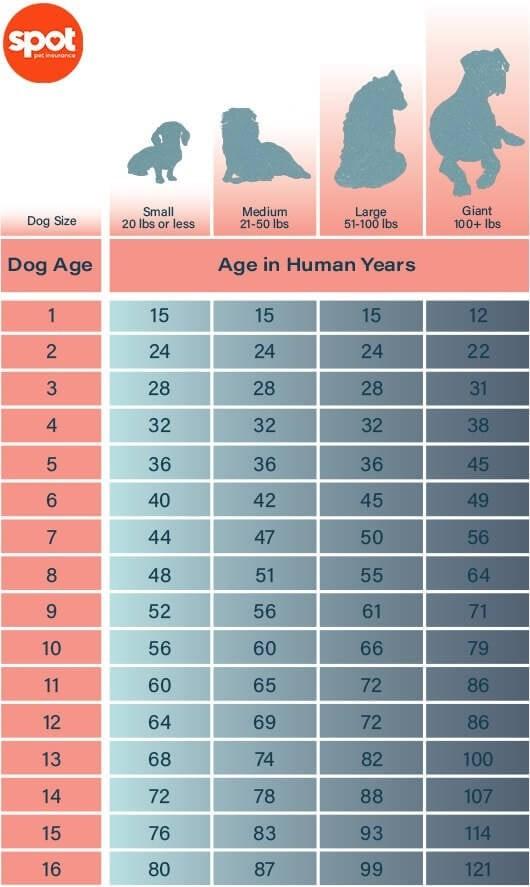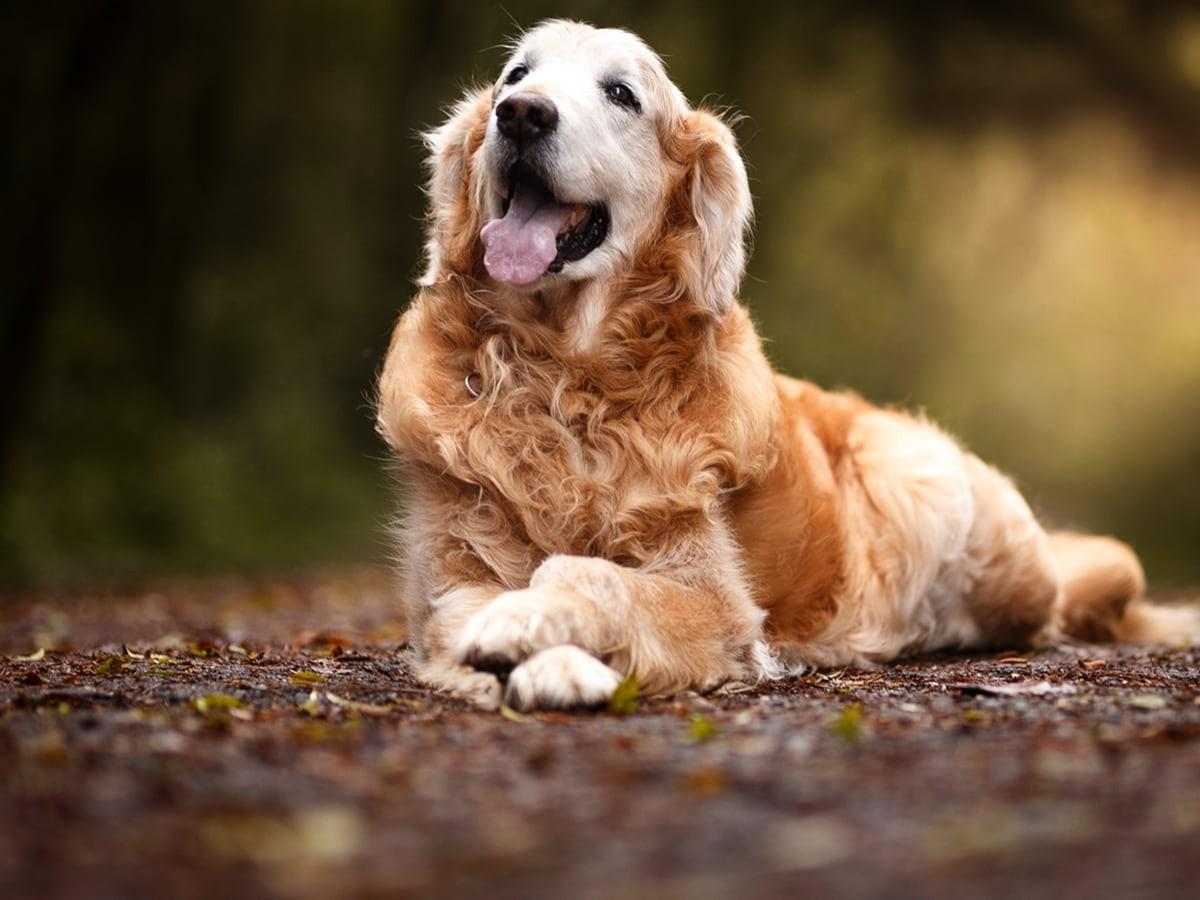Have you ever wondered how old your furry friend would be in human years? While the old adage suggests one dog year equals seven human years, it's actually a little more complex. This guide explores the factors affecting dog aging, provides a conversion chart by size, and offers tips to help your dog live a long and healthy life.
Factors Affecting Dog Aging
Several factors influence how long a dog lives and how quickly they age. Here are the two main ones:
Size: Generally, smaller dogs tend to outlive larger breeds. Their bodies metabolize food more efficiently and may be better equipped to fight off free radicals and abnormal cell growth.
Breed: Different breeds have inherent lifespans. For example, a Great Dane's average lifespan is significantly shorter than a Chihuahua's.
Frailty Index: Beyond size and breed, some researchers consider a dog's "frailty index" to assess their biological age. This index takes into account a dog's activity level, current health conditions, and any impairments impacting their well-being. A high-energy dog with no health issues would have a lower frailty score than a less active dog with chronic health problems.
Dog Age Conversion Chart by Size
While there's no perfect formula to pinpoint a dog's exact human age, the following chart offers a general conversion based on size and dog years:

Dog age chart for sizes ranging from small dogs weighing 20 lbs or less to giant dogs that weigh 100+ lbs.
Key points of the chart:
A 1 year of a dog is equivalent to about 15 years in human age.
Smaller dogs tend to outlive larger dogs, which is why the human age for each size differs.
Small dogs aren’t considered to be “seniors” until age 10. For giant dogs (100+ lbs), become seniors at ages 5 or 6.
How do Small Dogs Age?
Because of their size, smaller dogs typically live longer than their larger dogs mostly because their bodies metabolize food more efficiently, are more adept at fighting free radicals and abnormal growths within the body.
Smaller dog breeds tend to live longer than their larger counterparts, living on 10-15 years on average.
It takes about 9-12 months for small breeds to become fully-grown adult dogs.
Based on human age, they are considered senior dogs a bit past age 12.
Common small breed dogs:
How Do Medium-sized Dogs Age?
Medium dog breeds will live anywhere from 10 to 13 years of age, depending on the breed.
It takes about 12 months on average for a medium-sized breed to become an adult dog.
Based on human age, medium-sized dogs are considered to be senior at age 11.
Common Medium-Sized Breeds:
How Do Large Dogs Age?
Large dogs grow to a big size in a relatively short amount of time, aging them faster and making them more susceptible to tumors that can negatively impact their health.
The larger the dog, the shorter their expected life span. Large dogs typically live anywhere from 8 to 12 years of age.
They take about 12-16 months to fully grow into adult dogs.
Based on human age, large breeds are considered senior dogs between 8 or 9 years of age.
Common large breed dogs
Can You Tell Exactly How Old a Dog Is?
Unfortunately, there's no single method to determine a dog's exact human age. However, veterinarians can use a combination of factors like tooth wear, muscle tone, and coat condition to estimate a dog's age range. Additionally, a recent study by UC San Diego developed a more precise dog age conversion formula using DNA. Consulting your veterinarian is always recommended for a more accurate assessment of your dog's health and age.
How Old is a 7-Year-Old Dog in Human Years?
According to the chart, a 7-year-old small dog would be roughly equivalent to a 44-year-old human, while a 7-year-old giant dog would be closer to a 56-year-old human. Remember, this is just an estimate.
How to Help Your Dog Live Longer
Here are some tips to promote a long and healthy life for your canine companion:
Provide a balanced diet: Feed your dog a high-quality diet formulated for their age, size, and activity level. Avoid processed human foods like sugary treats, fatty scraps, and salty snacks. These can contribute to obesity, digestive issues, and other health problems.
Regular exercise: Daily walks, playtime, and mental stimulation are crucial for maintaining your dog's physical and mental well-being. Exercise helps control weight, improves mood, and strengthens muscles and joints.
Regular veterinary care: Schedule regular checkups with your veterinarian for preventive care, vaccinations, and early detection of any potential health issues.
Love and attention: Dogs are social creatures who thrive on love and companionship. Show your dog you care with plenty of petting, playtime, and positive reinforcement training.
By understanding the factors affecting dog aging and implementing these healthy lifestyle habits, you can help your furry friend live a long, happy, and fulfilling life. Remember, the information in this guide is for general knowledge only. Always consult your veterinarian for personalized advice on caring for your dog at any age.
To support healthy aging in your pup, check out Spot Pet Insurance's preventative care coverage options, which can be added at an additional cost. Preventative care is a great type of care to have as your dog ages and becomes vulnerable to developing health conditions! Show your furry friend you love them by getting help protecting them against accidents, illnesses, or emergencies with a dog insurance plan from Spot.
More About Spot Pet Insurance
Pet insurance can help provide financial assistance for covered veterinary care in case of unexpected accidents, illnesses, or injuries. Our plans can help pet parents manage the eligible costs of covered veterinary care and help ensure that their pets can receive the best treatment possible. Here are some ways that Spot pet insurance plans can help:
Helps Cover Unexpected Veterinary Costs: Spot pet insurance plans help cover the eligible costs of unexpected veterinary treatments, such as emergency surgeries, X-rays, and prescription medications for covered conditions.
Customizable Plans: Choose your annual limit, reimbursement rate, and deductible from a range of options, and create the plan that will fit the needs of your pet and your budget.
Peace of Mind: With Spot pet insurance plans, pet parents can know that they can provide the best care for their pet with less worry about the cost.
To learn more about Spot Plans or to get a free quote, click here.

Mostly a tech person, always a pet person. I am dedicated to improving the lives of pets and their humans with technology. Off-duty, I enjoy writing about the misbehaving of computer programs and my two Aussiedoodles, Calvin and Hobbes.












